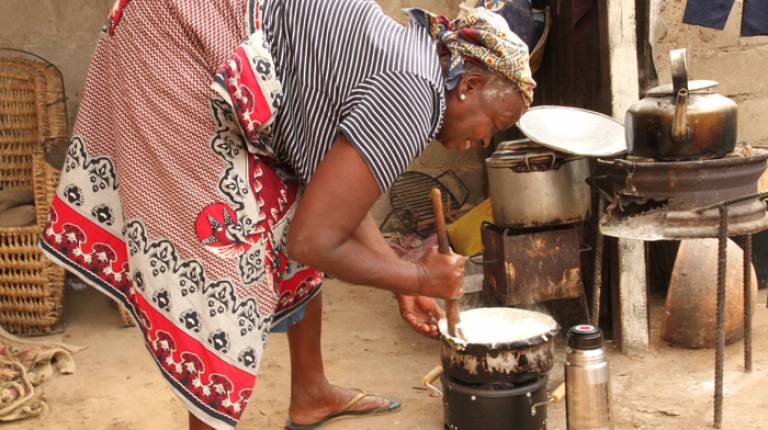Mapping Urban Energy Landscapes (MUEL) studies humanity's potential to achieve low carbon, socially just cities in rapidly urbanising areas in the global south.

Overview
Achieving low carbon, socially just cities will require a spatial, socio-economic and political transformation. This transformation will depend on our ability to find low carbon development pathways for urban energy systems.
MUEL is an ESRC Future Research Leaders Programme concerned with understanding the multiple cultures of energy that emerge in cities in the global South. The research is funded with an ESRC Future Research Leaders Fellowship Grant.
Grant reference: ES/K001361/1 | Visit the project page on the ESRC website
About MUEL
Changes in energy systems and urbanisation processes are mutually dependent. Thus, devising sustainable development pathways towards low carbon and socially just cities will require new methods to analyse the shared history and geography of energy systems and cities.
Sociotechnical perspectives focus on the heterogeneous nature of energy systems, including both social components (such as energy use norms and behaviour, economic activities, and government regulations) and technical components (such as generation technologies, distribution networks and home appliances). These perspectives have already advanced our understanding of sustainable development pathways identifying structural factors which prevent the rapid transition towards sustainable energy systems and devising institutional processes to catalyse transitions.
These theories, however, have not fully engaged with the spatial, historical and political aspects of those transitions. Moreover, few of these studies have linked the operation of energy systems with their impacts on the everyday life of people in cities in the global South.
The concept of Urban Energy Landscapes (UELs) incorporates both sociotechnical theories of energy and theories which look at the distribution and histories of energy and everyday life in cities. UELs draw attention to the equity issues raised by the production, transmission and consumption of energy in cities in the global South, in particular, to the unequal distribution of access to energy services and environmental burdens within those UELs.
Methodology
The project focuses on ‘mapping’ as a means to understand both the history and spatial patterns that characterise UELs. However, looks into mapping as a heterogeneous practice which engages at once with technological change and deliberate attempts at ‘making’ the city.
A key aspect of the methodology is the relationship between walking and mapping, and how this can be capture in different forms of representation specially mental maps, collective and participatory forms of mapping, photographs and personal narratives.
A second feature of the methodology is to adopt a focus on material artefacts, looking in particular at the backward and forward linkages that provide them with context and meaning so that they can be incorporated in different aspects of social life.
These methods will be tested in four cities: Maputo (Mozambique), Lima (Peru), Bangalore (India), and Hong Kong (China). These are different cities with radically different set of issues with regards to energy, for example, in relation to their dependence from different fuels, different patterns of consumption and different opportunities for technological innovation.
Project Team
MUEL is led by Vanesa Castán Broto, a senior lecturer at the Development Planning Unit, UCL, where she is also the Director of Research and one of the Directors of the MSc Environment and Sustainable Development.
During this research Vanesa has been supported by a team of researchers and collaborators including:
- Diana Salazar
- Kevin Adams
In Hong Kong
In Bangalore
In Maputo:
- Carlos Seventine, FUNAB
- Felisbela Materrula, AVSI
- Domingos Macucule, Universidade Eduardo Mondlane
- David Nhancale, AMANDLA
The project also benefits from a team of mentors and an advisory board who regularly provide feedback on its academic development and its societal impact.
Mentors
- Professor Yvonne Rydin, Bartlett School of Planning
- Professor Muki Haklay, CEGE
- Professor Karen Seto, Yale School of Forestry and Environmental Sciences
MUEL Advisory Board
- Dr Evelina Trunetvyte
- Dr Hilary Jackson (UCL Public Engagement)
- Professor Andrew Barry (UCL Geography)
Research
MUEL Blog: www.energylandscapes.wordpress.com
MUEL News & Events: www.energylandscapes.wordpress.com/category/events
Publications:
By Harriet A Bulkeley, Vanesa Castán Broto, Gareth A.S. Edwards
Cities and Low Carbon Transitions
Edited by Harriet Bulkeley, Vanesa Castán Broto, Mike Hodson, Simon Marvin
 Close
Close

